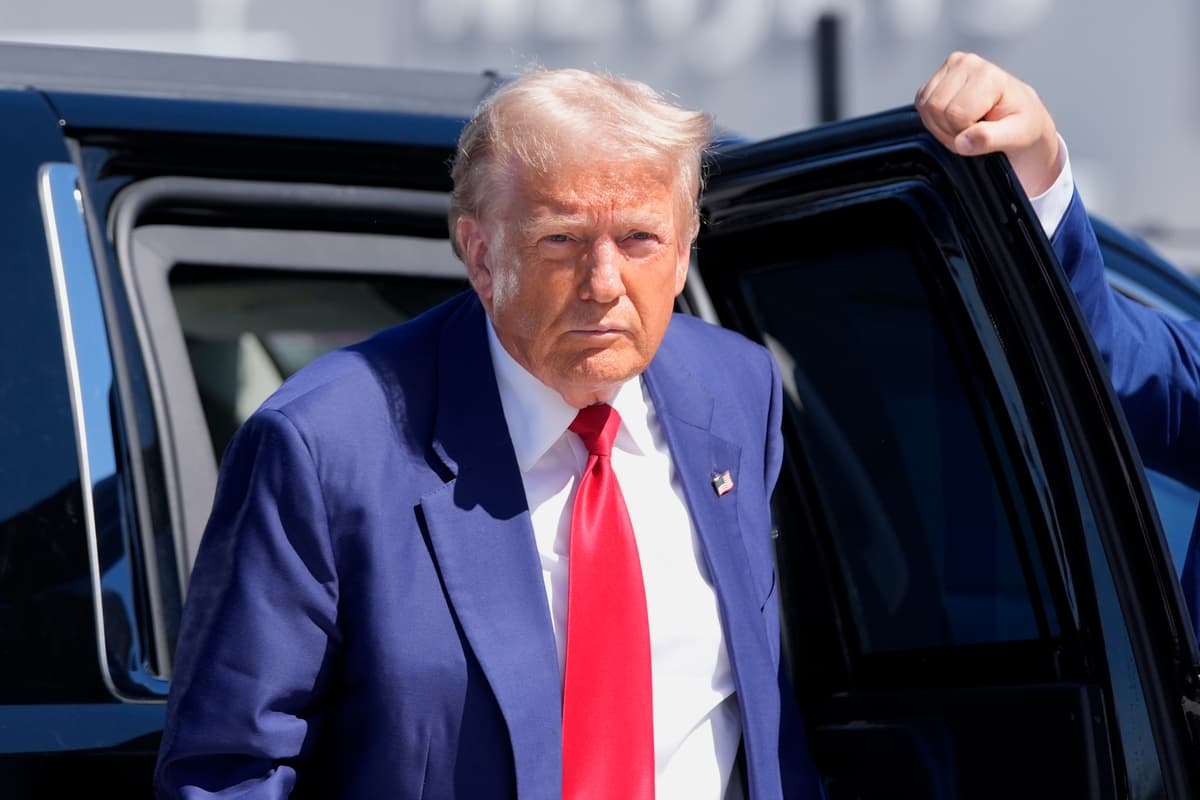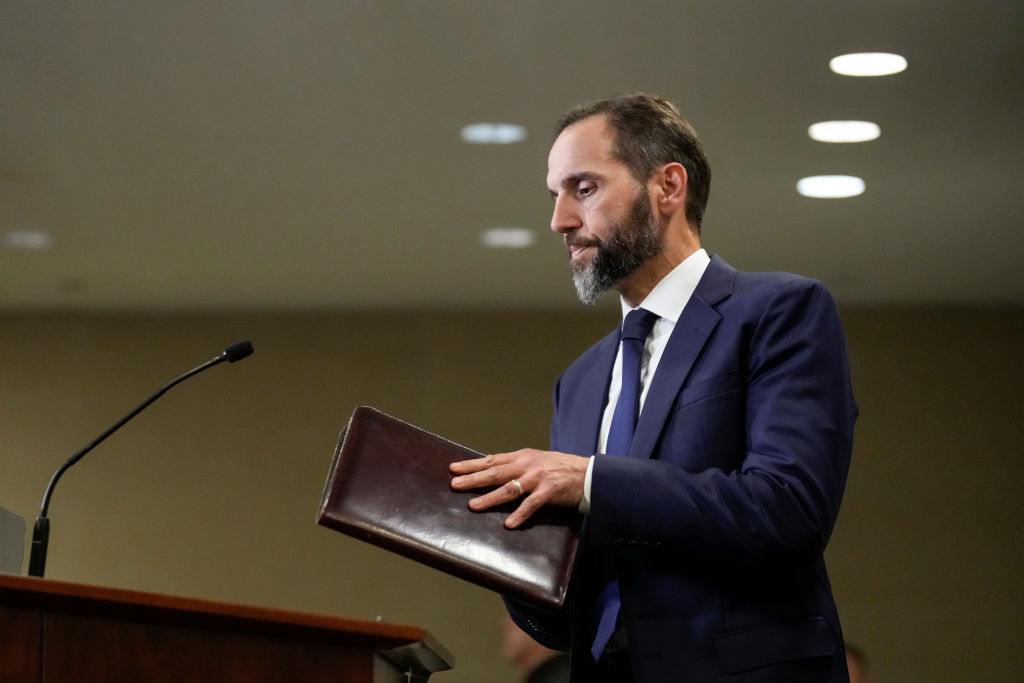Trump, at a Breaking Point With Judge Chutkan Over Jack Smith’s ‘Election Interference,’ Mulls an ‘Extraordinary’ Appeal
The 45th president appears to be telegraphing his intent to ask a higher court to stop release of January 6 evidence.

Judge Tanya Chutkan’s plan to release more of Special Counsel Jack Smith’s case against President Trump in the weeks before November’s election could prompt the 45th president to issue an extraordinary request to a higher court. The relationship between Trump and the judge appears to have reached a breaking point.
That possibility came into sharper relief with the docketing of a pair of brief orders from the trial judge that center on the appendix to Mr. Smith’s 165-page immunity opus. Judge Chutkan earlier this month decided to unseal the main text of that motion, which argues that Trump “must stand trial for his private crimes as would any other citizen.” Now Mr. Smith wants more evidence unsealed and released in the court of public opinion.
Judge Chutkan has sided with Mr. Smith again, this time with respect to the document’s appendix. She writes that the government’s “proposed redactions … are appropriate” and that Trump’s “blanket objections to further unsealing are without merit.” She notes that his “’concern with the political consequences of these proceedings’ is not a cognizable legal prejudice.”
The judge, though, granted Trump’s request for a stay, or a delay in the release of the supplemental evidence adduced by Mr. Smith. The former president wanted the extra time to “evaluate litigation options” in the event that Judge Chutkan denied his request to seal the evidence Mr. Smith has put together over the last two years. The Supreme Court returned the January 6 case to Judge Chutkan after the justices ruled that official presidential acts are presumptively immune. Trump calls Mr. Smith’s document a “monstrosity” and a “false hit job.” He opposed its existence, let alone its publication.

Trump’s position is that “there should be no further disclosures at this time of the so-called ‘evidence’ that the Special Counsel’s Office has unlawfully cherry-picked and mischaracterized—during early voting in the 2024 Presidential election.” He asserts that the immunity filing possesses “no basis in criminal procedure or judicial precedent” and that it amounts to “overt and inappropriate election interference” that runs afoul of the Department of Justice’s own guidelines.
The request for time to “evaluate litigation options” is a clear indication that Trump’s lawyers are considering an appeal to stanch the flow of Mr. Smith’s evidence to the public. The 45th president’s lawyers could be considering turning to the District of Columbia Circuit of the United States Court of Appeals for a writ of mandamus. That’s an order from a higher court to a lower one.
The Legal Information Institute explains that this writ is used to order a court to “properly fulfill their official duties or correct an abuse of discretion.” The All Writs Act, first signed into law by President Washington in 1789, gives the “Supreme Court and all courts established by Act of Congress” the power to issue writs of mandamus “in aid of their respective jurisdictions and agreeable to the usages and principles of law.”
The Department of Justice practice manual, which governs Mr. Smith but not Trump, explains that “Mandamus is an extraordinary remedy, which should only be used in exceptional circumstances of peculiar emergency or public importance.” The District of Columbia circuit, though, has repeatedly ruled against Trump, most recently when it affirmed Judge Chutkan’s ruling that former presidents were not entitled to any species of immunity.
The Supreme Court overruled Judge Chutkan and the circuit riders, and Trump could try his luck before the Nine again via an emergency appeal of the kind pressed by his former chief of staff, Mark Meadows, in another criminal case. The granting of mandamus, at any appellate level, is discretionary and intended to correct abuses of discretion. Securing one is a high bar to clear because usually only final rulings are appealable.
Trump’s best argument for a successful appeal is likely to be that the release of Mr. Smith’s cache of evidence — even with redactions — violates his constitutional right to an “impartial jury.” He could also aim to convince a higher court that Judge Chutkan is mistaken when she reckons that the harm to Trump’s electoral prospect is not a “cognizable legal prejudice.”
The possibility that Trump could petition for a writ of mandamus is an ironic turn of events given Mr. Smith’s apparent interest in securing a writ at an earlier stage of his Mar-a-Lago case against the former president. In May, Judge Aileen Cannon indefinitely delayed the trial in that prosecution, and the special counsel appeared to consider asking the 11th United States Appeals Circuit to order her to set a date. Things only got worse for Mr. Smith from there, as Judge Cannon found that his appointment by Attorney General Garland was unlawful and dismissed the charges. The special counsel has appealed that decision.

